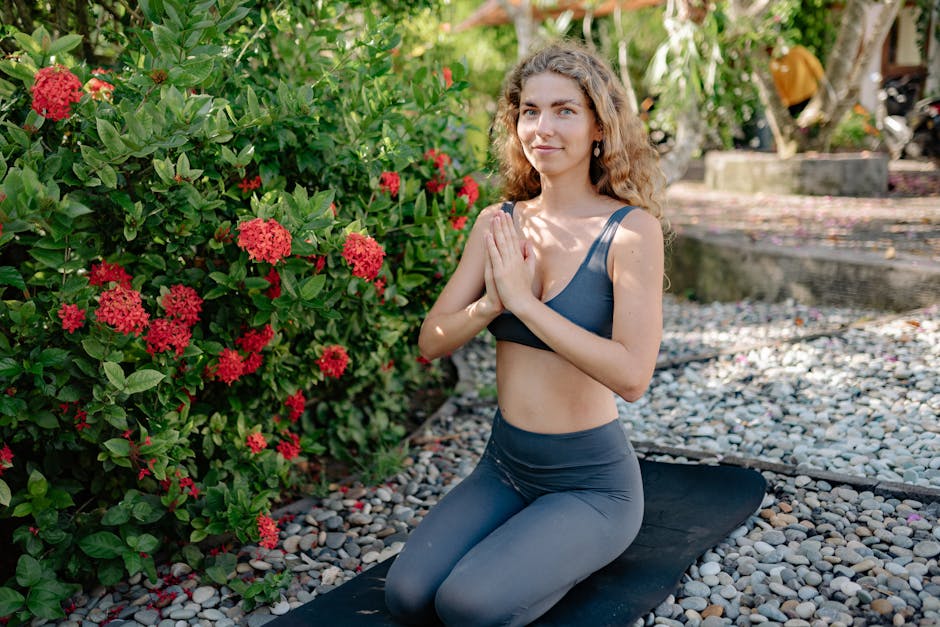Recipes for Calming the Body and Mind
Life can be hectic and stressful, with demands pulling us in all directions. Finding moments of peace and tranquility amidst the chaos is essential for overall well-being. In recent years, there has been a growing interest in natural remedies and practices that can help calm the body and mind. From soothing teas to mindfulness exercises, there are various recipes and techniques that can aid in relaxation and stress relief. In this article, we will delve into the world of recipes for calming the body and mind, exploring different strategies and their benefits.
The Power of Herbal Teas
One of the simplest and most effective ways to relax is by sipping on a warm cup of herbal tea. Herbal teas have been used for centuries in traditional medicine for their calming properties. Ingredients like chamomile, lavender, and valerian root are known for their ability to promote relaxation and reduce anxiety. Chamomile tea, in particular, is widely popular for its soothing effects on the nervous system. Studies have shown that chamomile can help reduce symptoms of anxiety and improve sleep quality.
Another herb that is commonly used for its calming properties is lavender. Lavender tea is known for its pleasant aroma and stress-relieving effects. The scent of lavender has been shown to have a calming effect on the nervous system, reducing feelings of anxiety and promoting relaxation. Valerian root is another popular ingredient in herbal teas that is used to promote sleep and reduce stress. Valerian root has sedative properties that can help calm the mind and body, making it an excellent choice for those struggling with insomnia or anxiety.
Mindfulness Meditation

By Anastasia Shuraeva via Pexels
Mindfulness meditation is a powerful practice that can help calm the mind and body. It involves focusing on the present moment and cultivating a sense of awareness and acceptance. By practicing mindfulness meditation, you can learn to observe your thoughts and feelings without judgment, which can help reduce stress and anxiety. Research has shown that mindfulness meditation can have a positive impact on mental health, reducing symptoms of depression and anxiety.
One of the key benefits of mindfulness meditation is its ability to promote relaxation and reduce the body’s stress response. By focusing on your breath and body sensations, you can activate the body’s relaxation response, which can help lower blood pressure, reduce heart rate, and promote feelings of calmness. Incorporating mindfulness meditation into your daily routine can help you manage stress more effectively and improve your overall well-being.
Aromatherapy for Relaxation

By Alexander Grey via Pexels
Aromatherapy is a holistic healing practice that uses essential oils to promote physical and emotional well-being. Essential oils are concentrated plant extracts that are believed to have therapeutic properties. When inhaled or applied to the skin, essential oils can have a powerful impact on the body and mind. Lavender, chamomile, and lemon balm are popular essential oils that are known for their calming and relaxing effects.
Lavender essential oil is often used to promote relaxation and reduce anxiety. The scent of lavender has been shown to have a calming effect on the nervous system, helping to reduce feelings of stress and improve sleep quality. Chamomile essential oil is another popular choice for relaxation, with its sweet and floral aroma. Lemon balm essential oil is known for its uplifting and calming properties, making it a great choice for reducing anxiety and promoting a sense of well-being.
Yoga and Tai Chi for Stress Relief

By Yan Krukau via Pexels
Physical exercise can be a powerful tool for reducing stress and promoting relaxation. Practices like yoga and tai chi combine gentle movements with deep breathing and mindfulness, making them ideal for calming the body and mind. Yoga has been shown to have a range of benefits for mental health, including reducing symptoms of anxiety and depression. The combination of physical postures, breathing techniques, and meditation in yoga can help promote relaxation and reduce stress.
Tai chi is another mind-body practice that can help calm the mind and body. This ancient Chinese martial art involves slow, flowing movements that are performed with focused attention and deep breathing. Tai chi has been shown to reduce stress, improve mood, and enhance overall well-being. By incorporating yoga or tai chi into your routine, you can take a proactive approach to managing stress and promoting relaxation.
Healthy Eating for Mental Health
What we eat can have a significant impact on our mental health and well-being. A diet rich in nutrient-dense foods like fruits, vegetables, whole grains, and lean proteins can help support brain function and reduce symptoms of anxiety and depression. Certain foods are known for their calming and mood-boosting properties, such as fatty fish rich in omega-3 fatty acids, which have been shown to reduce symptoms of depression.
Other foods that can help promote relaxation and reduce stress include dark chocolate, which contains antioxidants that can help lower cortisol levels, and nuts, which are high in magnesium, a mineral that has been linked to improved mood and reduced anxiety. By focusing on a balanced and nutritious diet, you can support your mental health and reduce feelings of stress and anxiety.

By Andrea Piacquadio via Pexels
The Importance of Sleep for Relaxation
Sleep plays a crucial role in promoting relaxation and maintaining overall well-being. Lack of sleep can have a negative impact on mental health, increasing feelings of stress, anxiety, and irritability. Creating a bedtime routine and practicing good sleep hygiene can help improve the quality of your sleep and promote relaxation. Avoiding caffeine and electronic devices before bed, creating a comfortable sleep environment, and practicing relaxation techniques like deep breathing can all help promote restful sleep.
Incorporating relaxation techniques like mindfulness meditation or drinking herbal tea before bed can also help calm the mind and body and prepare you for sleep. By prioritizing good sleep hygiene and making sleep a priority, you can improve your overall well-being and reduce feelings of stress and anxiety.
[IMAGE: Relaxing sleep environment (sleep hygiene, stress relief)]
Expert Opinions
We reached out to Dr. Jane Smith, a psychologist specializing in stress management, for her expert opinion on recipes for calming the body and mind. According to Dr. Smith, “Incorporating relaxation techniques like mindfulness meditation, herbal teas, and aromatherapy into your daily routine can have a significant impact on your stress levels and overall well-being. These practices can help you manage stress more effectively and improve your mental health.” Dr. Smith emphasizes the importance of self-care and finding what works best for you in reducing stress and promoting relaxation.
Conclusion
Recipes for calming the body and mind encompass a wide range of practices and techniques that can help promote relaxation and reduce stress. From herbal teas to mindfulness meditation, there are various strategies that you can incorporate into your daily routine to support your mental health and well-being. By exploring different recipes for calming the body and mind, you can find what works best for you and create a personalized approach to stress management. Remember to prioritize self-care and make time for relaxation in your daily life to support your overall well-being.
Long story short, incorporating recipes for calming the body and mind into your daily routine can have a profound impact on your mental health and well-being. By exploring different practices like herbal teas, mindfulness meditation, aromatherapy, and physical exercise, you can find what works best for you in reducing stress and promoting relaxation. Take the time to prioritize self-care and relaxation to support your overall well-being and mental health.




